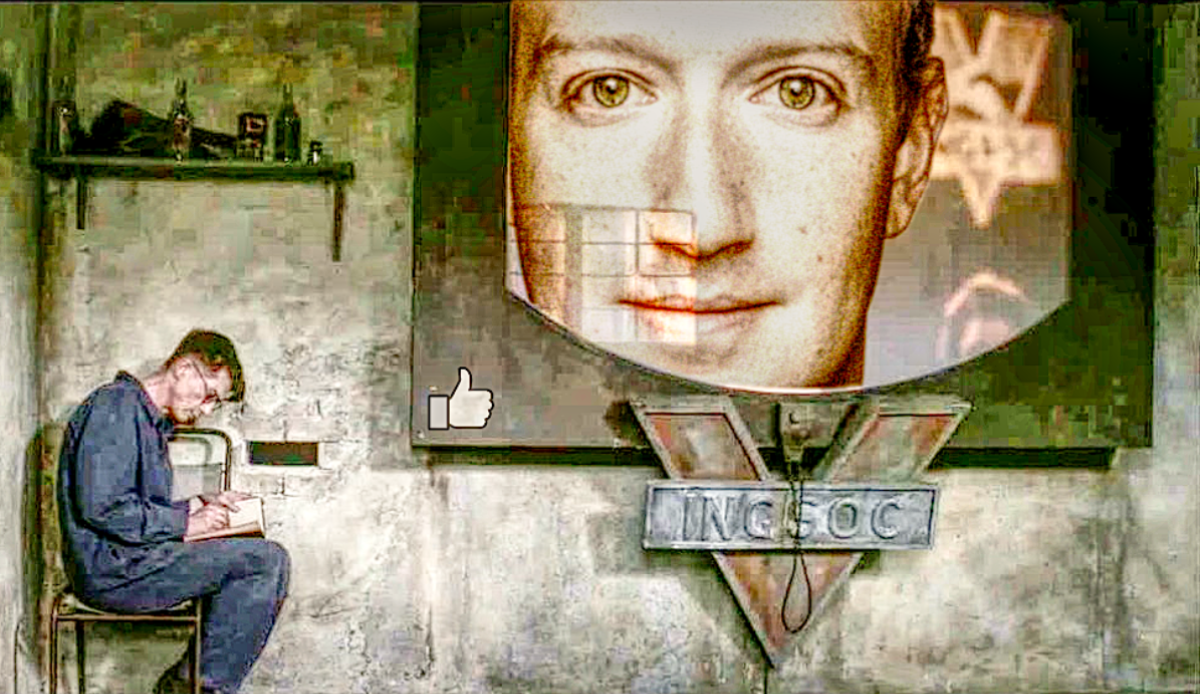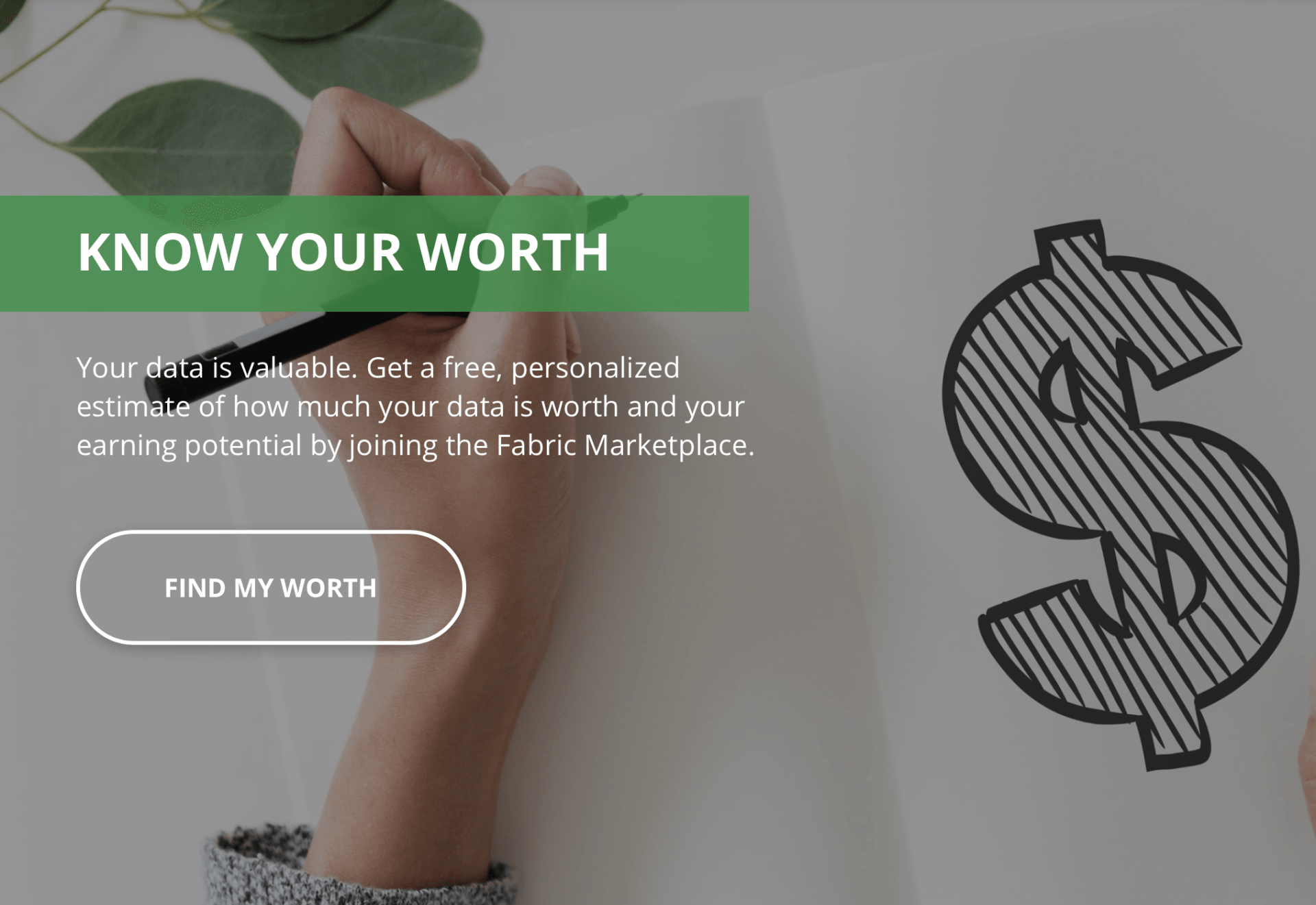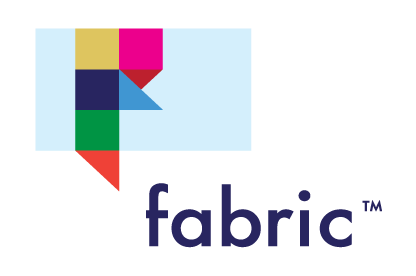Be the Future of Fair Data!
Fabric Blog

The author is Paul Taylor CEO and co-founder of Fabric . What is the meaning of Social Fabric? It is the bond which people share together and helps to form a culturally rich and socially cohesive community. Unfortunately, our social fabric in 2019 continues to be challenged and ripped apart… With the growth of search and social media over the past decade, dominated by the Facebook-Google Duopoly, consumer digital surveillance on and off these platforms has become a dangerous and potent side-effect impacting people around the globe. Facebook-Cambridge Analytica Scandal The Facebook data breach impacting 87 Million Consumer Facebook accounts by Cambridge-Analytica – a data analysis firm - that worked on President Trump’s 2016 and Brexit campaigns – exposed the public to the severity of this surveillance. Data is the new digital oil, and the companies that wield the power are the ones that harvest the most, and the highest quality data – think Facebook, Google, Amazon, Netflix. Every time we share, search, shop, and watch content – data is harvested about you and your network and sold or shared to third parties to send targeted advertising. Cambridge taught us that our personal data in the hands of sophisticated people with the right algorithms can wield tremdous influence and power. Furthermore, these data analytics firms can be hired by those that might otherwise not be caught dead with their hands on the smoking gun to potentially influence elections and the very due process of democracy. 2020 Presidential Elections With the 2020 Presidential elections around the corner, and with the presidential incumbents once again maneuvering for advantage, we are reminded of the importance of owning, and controlling our data and the tremendous influence that digital advertising and target ads have on our perception not only of these candidates, but also of the perception of society and the important issues at hand. I am reminded of a quote from Yuri Orlov from the 2005 movie – Lord of War. Yuri responds to Jack Valentine, the FBI Agent holding him for being an illegal arms smuggler. Yuri Orlov: Tell me I’m everything you despise. That I’m the personification of evil. That I’m what – responsible for the breakdown of the fabric of society and world order. I’m a one-man genocide. Say everything you want to say to me now. Because you don’t have long. Jack Valentine: Are you crazy? Or just plain delusional? I don’t think you fully appreciate the seriousness of your situation… Yuri Orlov: I do rub shoulders with some of the most vile, sadistic men calling themselves leaders today (hmm.. thinking about Trump). But some of those men are the enemies of your enemies. And while the biggest arms dealer in the world is your boss, the President of the United States, who ships more merchandise in one year than I do in a year…sometimes it’s embarrassing to have his fingerprints on the guns. Sometimes he needs a freelancer like me to supply forces he can’t be seen supplying. So…you call me evil. But unfortunately for you, I’m a necessary evil. I’m thinking Andrew Wheaton probably felt a little bit like Yuri Orlov. What lesson have we learned from this scandal?? Firstly, our every digital move is being tracked from the websites and apps we visit, content we share on social media, what we purchase, who we speak with, to where we travel and what we visit. This surveillance and data Collection occurs both online and offline. Secondly, Search and Social Media Gatekeepers leverage OUR personal data to make huge amounts of money. Most importantly, YOUR data is not safe. We have virtually NO say in how our personal information is used once they collect it, where it goes after, and who gets to view it, and more importantly how they make money from it. Facebook’s Portal Device With Christmas around the corner, I am reminded everyday of the dangers of surveillance capitalism. Companies like Facebook, Google, Amazon have upped their surveillance game in time for the holidays with their in home surveillance devices. Seeing Facebook market their Portal Device with seemingly innocuous Muppet characters is yet another example of the relentless and perverse nature of these corporation and their need to collect personal data to generate revenues using targeted advertising. George Orwell, author of the popular dystopian novel – 1984 – must be rolling around in his grave about this modern-day parable of having surveillance devices in our homes. Big Brother is alive and well. His name is Mark Zuckerberg. Enter Fabric. Fabric is a data marketplace designed to bring trust and transparency to digital advertising and put digital identity and data back in the hands of the people, where it belongs. Helping people regain their digital identity, own their data, keep it safe and monetize it. Blockchain – Decentralized Data Marketplace Fabric is a blockchain based advertising marketplace that solves for ad fraud by creating a micro-economy for personal data and positions the user in a position to own, control and monetize their data. The Fabric protocol treats every instance of a view, share, search as micro-transaction between two verified parties – advertisers and users – where an exchange of value occurs if the smart contract based on Proof-of-Value (Pov) is satisfied. This means registered users on Fabric get fair compensation from a portion of the $250 Billion spent annually on digital advertising. Advertisers create a value-chain that includes the consumer, with no interference from middle-man gatekeepers like Facebook or Google. Users are compensated fairly for their data by consenting to allow Brands to access their data, and for providing high quality first-party data. This allows Fabric to be the source of high-quality data. We are advocates of both public and private blockchains. At Fabric, we make user’s data privacy and data security paramount. Every micro-transaction is recorded on a public chain where advertisers can audit the entire advertising funnel and track every data block written for every advertising dollar spent. This creates 100% transparency. Consumer data is recorded on a private chain where only the consumer has access to the private key to decrypt this data or transfer. This makes data ownership a “third-first amendment” right. Data as Personal Property Companies like Humanity ( www.humanity.co ) are also championing this fight for data as personal property. We are encouraged to see data as a personal right as one of the main campaign promises of Andrew Yang – the democratic incumbent – running for President in 2020. Fabric – Debit Card Fabric has integrated the consumer data marketplace with third-party payment providers to enable registered users to transfer a portion of their earnings into their bank account. We will also be introducing a Fabric debit card (similar to Venmo) in Q1 / 2020 that gives registered users the ability to carry their balance with them and use it to pay for everyday items. The days of converting a “like” or “view” or your data into real world currency that You can use to pay for an uber ride or buy groceries is upon us with Fabric. Join the Fabric Marketplace and take back control of your data! __________________________________________________________________________________________________________ Click here to register for Fabric’s security offering and learn more about how we are making this vision a reality.

This article from The Economist poses this question, asking what would a data economy look like where tech giants had to pay people to access their data. It looks like Fabric. Fabric is a data transparency movement that allows you to control and share your data to advertisers in exchange for relevant messaging and fair compensation. We do this by creating a platform where both consumers and brands can connect and mutually provide value through an exchange. Consumers get compensated for sharing their data to brands. Brands have a better understanding of who to target. It’s a win-win. While it will be difficult given the current digital landscape, we think we can force these tech giants that make $100 billion dollars per year selling our data to compensate us, but we need the rest of the world to be on board. As the Economist notes, “Data provided by humans can be seen as a form of labour which powers artificial intelligence.” We believe consumers can monetize their data as a resource in the same way that electricity, water, and land has been owned and traded. Changing the current data landscape won’t be easy. It’d take people. Lots of people. With enough people joining our movement, we can change advertising. It’s time we take back control of our data and earned our fair share. Join our movement and be part of a community that will change how data is valued.

The development of blockchain technology and the increasing acceptance of cryptocurrency has enabled consumers to control and secure their personal data as an asset that they can manage and own. Unlike flat currency like Dollars or Euros that have to be replaced after being spent, you can reuse data over and over again. This makes it the perfect commodity to harness and own. Yet, we don’t own our own data. Instead, we let Search and Social Media companies and data brokers use and sell our data for profit. They use our data to target us and sell us products. We not only are being sold to… we’re being sold. Consumers are losing out. We give data companies access to our data unwillingly when we sign up for memberships, download apps, and use social media platforms not knowing how much leverage they have on our personal information. Consumers would be shocked to find out just how much data is collected on them. They’d be even more shocked to find out how valuable that data is and could be. This article on Quartz speaks to the rise of consumer surveillance and how scary it could be. Soon, machine learning and artificial intelligence will take over our digital lives. Both of these systems rely on our data, making our personal data increasingly valuable when we move towards the future. We see a future where your personal data could be worth $5,000-$20,000 a year. Fabric is a data transparency movement that’s fighting to help consumers own, secure, and monetize their data. Join us and be part of the future of fair data.

When we sign up for membership, log into an app, or purchase an item, we’re giving companies important information about who we are. This includes our phone numbers, dates of birth, addresses, credit card information, passwords, and even social security and passport numbers. In the wrong hands, this data can ruin lives. Yet, data breaches happen all too often. USA Today listed some of the largest data breaches in the past decade here . The list is shocking in many regards. These are brands and companies that we use everyday. From online applications like Uber, AOL, and LinkedIn to stores like Target, Home Depot, and TJ Maxx, these companies touch the lives of billions of individuals. The frequency of these data breaches shows that we have a long way to go towards data safety. Still, there are few steps being taken to both prevent the problem and to appease those affected by it. Time and time again companies simply pay a small fine, issue an apology, and carry on while we as consumers suffer the consequences. The process of reclaiming passwords, creating fraud alerts, monitoring accounts, and notifying banks and financial institutions is nothing short of tiresome. Even worse is when it’s too late for those affected and victims are forced to pick up the pieces from their stolen and hacked accounts. Why is it that when companies that use and handle our data falter, we the consumers are responsible for cleaning up their mess? This is a problem. Fabric is working to change that. Our decentralized blockchain model provides a secure and safe space to share your data and helps push data safety by representing the community of consumers who demand better control of our data. Join us.

Our every digital move is tracked, stored, and sold to third-parties. They make money by selling our data to 3rd party advertisers who want to target us based on our interests, location, age, occupation, and more. The revenues that these social giants make from selling our personal and private information all go to their billion dollar valuations while we the consumers make nothing in return. “Free” isn’t free. It comes at a significant price. We end up being a product only to be sold and sold to. Google is more than a search engine. Their many applications and companies gather information on us each time we send or receive emails, access and create documents using Google Sheets or Docs, schedule calls on Google Calendar, or watch Youtube. Moreover, they are accessing our households with Google Home. Facebook is more than a social sharing app. From Messenger and Instagram to WhatsApp, Oculus, and Masquerade, they are watching our every digital move. Dylan Curran wrote a post in The Guardian that breakdowns all the information that Google and Facebook has on him. His findings are staggering. If you’re concerned about your data privacy, this is worth a read . The problem is there’s no real way around being tracked. Most of us need to use our phone and access the internet, begrudgingly accepting the fact that our moves are being watched. We are forced to accept this reality because they have all the power. Fabric believes that consumer data is a personal asset and should not be sold to third parties for profit. This movement seeks to create a value exchange between consumers and advertisers to remove the middlemen who misuse and sell our data.

In May of 2018, the first large scale data regulation passed in the European Union impacting 511 million people. A few months later, one ordinary citizen turned political activist took on Silicon Valley’s tech giants to introduce California’s first data regulations and WON. This article tells the story of Alastair Mactaggart, and the question he had one night. Should he be worried about everything Google knew about him? As he dove deeper into online tracking and data mining, he soon found his answer. He should absolutely be worried. In fact, “He discovered that the United States, unlike some countries, has no single, comprehensive law regulating the collection and use of personal data.” He found out just how much information they had on him. From his shoe size to his income, they were able to track his every move. He decided it was time for measures to be set in place to protect consumers and their private data and both the tech industry and lawmakers agreed. New data regulations will be passed in 2020. Could this be the start of a data regulation movement that will spread throughout the U.S. and beyond? We at Fabric want to continue to push this movement. To help lead the charge in data regulation, privacy, and transparency. Join us.


